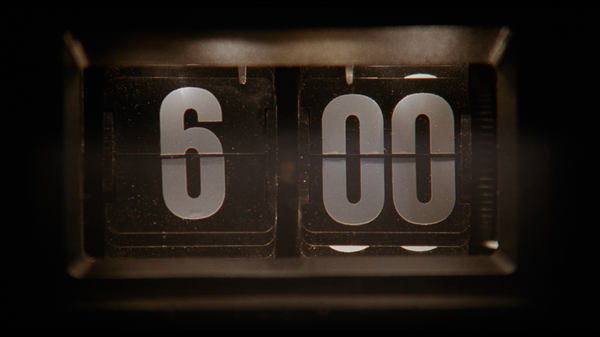I Am Fine Without Knowing: Avoiding the News Like a Disease
For the past year, I have become increasingly aware of how daily news consumption steers my life. I not only waste time reading it, but I am also injected with the emotional aspects of the news and may alter my actions based on what I read.
Most News You Read are Negative By Design
You are probably aware that news and social media feeds contain a lot more negativity, simply because we seek it out. We are psychologically driven to seek out negative news due to a cognitive bias known as the negativity bias. This is our tendency to give more attention and weight to negative information than to positive information.
From an evolutionary perspective, this bias was a survival mechanism. Our ancestors who were more attuned to threats and dangers in their environment—such as predators, rival tribes, or natural disasters—were more likely to survive and pass on their genes. When you account for thousands of years, the most paranoid, violent, and aggressive among us were the ones who survived, while more peaceful people simply faded away.
When we encounter negative news, it triggers a strong emotional response, signaling a potential threat. This response, in turn, makes the negative information more memorable and attention-grabbing than positive or neutral information.
While keeping up with the news was once essential for survival and could still be in rare cases—such as an invasion—for most people today, the emotional toll outweighs the benefits. Furthermore, in the event of truly critical news, information spreads so quickly through word-of-mouth that you would likely become aware of it even without actively following the news.
The Third World War
Let's be honest, the world is full of violence and crimes against humanity, with perpetrators who will never face justice. But we live in a large world. There is so much information available that you could read about that sort of stuff every day, all day long.
I remember the time in the spring of 2020, when rumors about Kim Jong Un's failing health and long absence from public view led to a surge of fear-mongering news about his potential successor. His younger sister, Kim Yo Jong, who had been gaining prominence in the Workers' Party, was widely identified as the most likely candidate to take over leadership of the nuclear-armed country. The news coverage often framed Kim Yo Jong as a more ruthless and aggressive figure than her brother. Media outlets pointed to her tough rhetoric and increasing public visibility, suggesting that if she were to assume power, she would just bomb us all and start a war. Did it help me or you? Was my life better for knowing that?
You might think it's immoral, but if something is further from you than a certain number of kilometers or miles, it's just not worth knowing.
Consumption of Made Up and Brainwashed Stuff
Some news that we consume is entirely fabricated. One category of this "made up news" can be traced back to the principles of public relations pioneered by Edward Bernays, particularly around the 1920s. His work, as detailed in his book Propaganda (1928), describes how news can be deliberately manufactured to promote products, policies, or ideas. A classic example is creating an event, such as a "15th birthday," and then generating news around it to promote a company, cause, policy, opinion or a product. This is not journalism in the traditional sense, but rather a form of staged publicity disguised as genuine news.
"Birthdays," "ribbon-cutting ceremonies," "product launches," and "anniversary celebrations"—all that content belongs in the garbage bin and should cease to exist.
But there is another category of "made up news" I want to discuss, which is unique to this blog. This category consists of news where an event or a "scientific discovery" is presented as real, and a large population, including governmental institutions, comes to believe it's true. These events are ultimately nonexistent, and the public is brainwashed into accepting them as fact. Examples include viral videos of people supposedly dropping dead from a new virus in China, reports of hospitals overflowing with the sick and dead, or breakthrough discoveries by scientists claiming to have cloned an animal, created artificial general intelligence, or found a way to permanently cure a disease by changing one's genome.
To prove the existence of a procedure or a new virus, you need a properly controlled scientific study with appropriate negative controls. The study must first demonstrate, with statistical power, that the virus or genetic change procedure is real—not just a wild chemical cocktail without negative controls—and this must be shown with more than just three horribly butchered lab rabbits. Subsequently, another study with a large statistical sample size and proper control groups is needed to establish a cause-and-effect relationship, answering whether X exclusively causes Y. Instead, institutions often fight for grants, scientists focus on their careers, and few are willing to dedicate the years and substantial funding required to genuinely prove anything. This creates a parallel world—a world that isn't real but which a large portion of the population believes to be. Cutting out the media certainly helps to reduce the consumption of this type of "made up news."
You Can't Grow By Passively Ingesting
My lifestyle has always prioritized personal growth, and I've reached a tipping point where consuming social media and YouTube has become detrimental. While information is valuable when you are starting out and naively trust certified experts, once you have gained a deep understanding, true progress comes from studying niches and focusing on what you are not doing rather than what you are.
Completely cutting out "Shorts," "feeds," "updates," "news," and "new releases" is the best thing anyone can do for their mental health. This cesspool of crap, with AI bots run by organizations desperately trying to sway your opinion on certain topics, is just too crowded. This is especially true now, where leveraging large language models creates fake people around the net who are too eager to share their take on the latest controversy.
Block it and avoid at all costs.
Thank you for reading.

